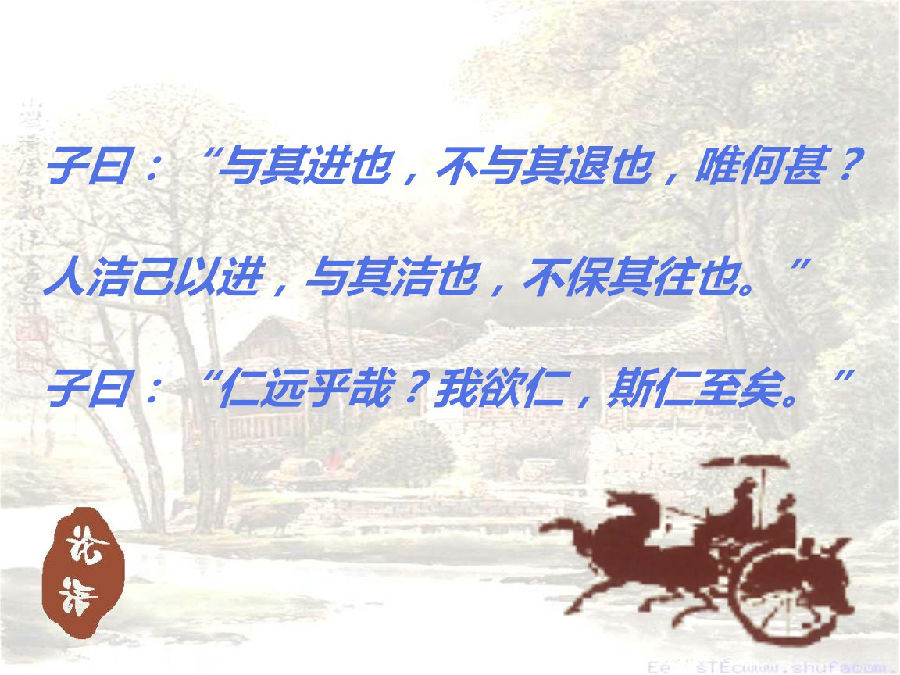The Master said, "I admit people's approach to me without committing myself as to what they may do when they have retired. Why must one be so severe?
子曰:“与其进也,不与其退也,唯何甚?
If a man purify himself to wait upon me, I receive him so purified, without guaranteeing his past conduct."
人洁己以进,与其洁也,不保其往也。”
The Master said, "Is virtue a thing remote? I wish to be virtuous, and lo! virtue is at hand."
子曰:“仁远乎哉?我欲仁,斯仁至矣。”
The minister of crime of Ch'an asked whether the duke Chao knew propriety,
陈司败问:“昭公知礼乎?”
and Confucius said, "He knew propriety." Confucius having retired, the minister bowed to Wu-ma Ch'i to come forward, and said,
孔子曰:“知礼。”孔子退,揖巫马期而进之,曰:

"I have heard that the superior man is not a partisan. May the superior man be a partisan also?
“吾闻君子不党,君子亦党乎?
The prince married a daughter of the house of WU, of the same surname with himself, and called her, 'The elder Tsze of Wu.'
君取于吴,为同姓,谓之吴孟子。
If the prince knew propriety, who does not know it?"
君而知礼,孰不知礼?”
Wu-ma Ch'i reported these remarks, and the Master said, "I am fortunate! If I have any errors, people are sure to know them."
巫马期以告,子曰:“丘也幸,苟有过,人必知之。”
When the Master was in company with a person who was singing, if he sang well, he would make him repeat the song, while he accompanied it with his own voice.
子与人歌而善,必使反之,而后和之。


